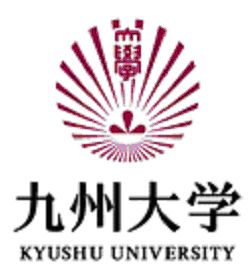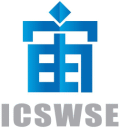
ISWI Events meetings on the subject of ISWI in 2015 and 2014 year
The list is updated on August 17, 2014
To find the last message added to this list, please search for text "Added on ..." or click here.
In 2015 list:
![]() United Nations/Japan Workshop on SPACE WEATHER "Science and Data Products from ISWI Instruments"
2–6 March 2015, Fukuoka, Japan go to
United Nations/Japan Workshop on SPACE WEATHER "Science and Data Products from ISWI Instruments"
2–6 March 2015, Fukuoka, Japan go to
- In 2014 list:
- Expert Meeting on Improving Space Weather Forecasting in the Next Decade February 10-11, 2014, Vienna International Center, Vienna, Austria go to
to see events in 2013 click here
to see events in 2012 click here
to see events in 2010-2011 period click here
Added on August 17, 2014
First Circular (15 June 2014) ![]() .
.
Science and Data Products from ISWI Instruments
2–6 March 2015, Fukuoka, Japan
Workshop WEB-site


Background
The Workshop will be hosted by the International Center for Space Weather Science and Education ( ICSWSE, pronounced iku-sei) of Kyushu University, on behalf of the Government of Japan. It will be held in Fukuoka, Japan, from 2 to 6 March 2015.
The Workshop is co-sponsored by the following organizations:
- National Institute of Information and Communications Technology (NICT)
- Japan Society for the Promotion of Science (JSPS)
- Tohoku University
- Fukuoka City
This workshop will be conducted in parallel with other workshops, the primary one
being the 2015
3rd Workshop of AOSWA (Asia Oceania Space Weather Alliance), March 2015, Fukuoka, Japan.
Workshop Objectives Read more...
Workshop Objectives, Programme and Application Forms
The objective of the Workshop is to provide a global forum for participants to discuss capacity building, global observation, and science/education on space weather, building on the achievements of the International Space Weather Initiative (ISWI).
The Workshop Programme will consist of a series of Sessions with technical presentations, panel discussions and working group meetings. Sessions will cover:
- Space weather instrumentation: (a) Space-based, (b) Ground-based (ISWI)
- Solar weather
- Solar wind and inter-planetary medium
- Magnetosphere
- Ionosphere
- Atmosphere
- Coupling processes
- Sun-to-Earth space weather modeling
- Space weather impact
Applications to participate in the Workshop will be accepted from 1 September 2014.
On a competitive basis limited support (e.g. air-ticket, accommodation) will be available for qualified applicants from developing countries to attend the Workshop.
Logistics (Hotel Arrangements, Location)
TBD
close additional textAdded on October 21, 2013
The Meeting completed successfully
Look at presentations
Expert Meeting on Improving Space Weather Forecasting in the Next Decade
February 10-11, 2014, Vienna International Center, Vienna, Austria
To be held in conjunction with the 51st session of
the Scientific and
Technical Subcommittee of the Committee on the Peaceful Uses of Outer
Space (COPUOS)

The International Space Weather Initiative (ISWI), with the support of the United Nations Committee for the Peaceful Uses of Outer Space, has been very active in promoting the installation of new ground-based instrumentation in non-traditional locations. In particular, there has been substantial progress in the observation of the equatorial ionosphere, solar transients, and energetic particles from space. In the coming decade these observations will become available in real time and will be an important new data source for the forecasting of space weather events. New instruments are either in the process of deployment, or planned over the next decade. Similarly, the International Living with a Star (ILWS) program has been very active coordinating the plans of the world’s space agencies in the planning of new space missions, and in the development of space weather modeling and forecasting.
Read more...
Space weather is inherently an international enterprise. Solar and magnetic storms can affect large regions of the Earth simultaneously, and equatorial ionospheric disturbances occur routinely around the globe. It is therefore appropriate to promote improvement in space weather forecasting for the benefit of all nations. The purpose of this meeting is to bring together international scientists currently working in space weather research to discuss the paths for improvement of space weather forecasting during the next decade. Current forecasts are useful, but have limited accuracy.
New space missions and ground based instrumentation will ultimately provide data which will substantially improve space weather predictions. Examples include broad arrays of ground based instruments, sub-L1 missions employing solar sail technology or special deep space orbits to maintain position between the Sun and Earth could increase the current warning time for interplanetary disturbances by up to a factor of ten. New missions with spacecraft stationed at L5, on the far side of the Sun, or over the pole of the Sun have also been suggested.
The vulnerabilities of global navigation satellite systems (GNSS) are well categorized, and it is understood that space weather is the largest contributor to single-frequency GNSS errors. Primary space weather effects on GNSS include range errors and loss of signal reception. The GNSS industry faces several scientific and engineering challenges to keep pace with increasingly complex user needs: developing receivers that are resistant to scintillation and improving the prediction of the state of the ionosphere. With GNSS modernization, the use of additional signals is expected to reduce errors caused by the ionosphere.
Contributions for this meeting are solicited as both oral and poster presentations that identify new and innovative missions, instruments, and theoretical developments that point to new observational information required to improve our basic forecasting capability or accuracy during the next decade. Priority for oral presentation will be given to contributions suggesting new instrumentation, ground or space based, new mission concepts, and theoretical contributions which suggest new observations needed to improve current space weather forecasting. Participation is open to all and broad international participation is anticipated. Presentations will be made available online in electronic format subsequent to the meeting, and the results of the meeting will be summarized in a brief report.
The agenda will feature an introductory and overview session with very general talks about space weather, followed by a session on the current state of forecasting, sessions on Ground Based instrumentation including GNSS, and sessions on new observational concepts for space missions that will provide new data for space weather forecasting in the future.
For additional information contact one of the convenors listed below:
Joseph M Davila................joseph.m.davila[at]nasa.gov
Madhulika Guhathakurta...madhulika.guhathakurta[at]nasa.gov
Sharafat Gadimova...........sharafat.gadimova[at]unoosa.org
Patricia Doherty...............Patricia.Doherty[at]bc.edu
close additional text